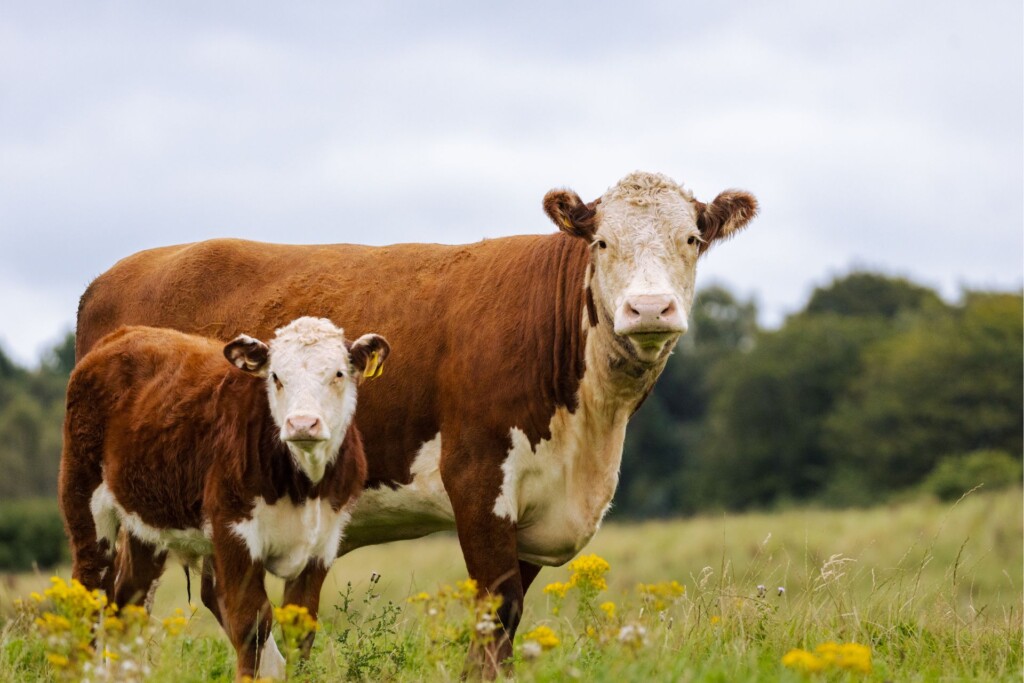At the Lodders Rural Conference, farmers, landowners, and a range of professional advisors joined together with the firm’s agricultural experts to discuss issues surrounding inheritance tax and succession planning, as well as ways of diversifying into new income streams through renewable energy and biodiversity net gain (BNG), as farms consider ways of protecting their assets and futures.
Held at Lapstone Barn on 24 September, the Lodders Rural Conference came at a turbulent time for farming families, as James Spreckley, partner and head of Lodders’ Agriculture and Landed Estates team, explains: “Farmers and farming families are in a period of uncertainty with upcoming government changes to inheritance tax leaving them unsure how they can best protect their capital assets from what could be significant tax demands. The conference provided an opportunity to discuss how farmers can alleviate the impact of these changes and some other risks to the best of their ability and plan for a positive future for their land.”
“The business of farming is farming as business”
Keynote speaker at the conference was Jeremy Moody, Secretary and Adviser to the Central Association for Agricultural Valuers (CAAV) – the UK’s leading rural professional advisory association for those advising farmers, owners, and others in the rural economy. For more than 30 years, Jeremy has played a key role in shaping agricultural policy and law, both within the EU and also since Brexit. He discussed the wide range of changes and issues that the rural sector is having to deal with, from agricultural tenancy and land occupation issues, to taxation, valuation, planning, climate change and environmental challenges.
“With the scything of de-linked payments and imminent changes to inheritance tax, English farmers are now farming as unsupported businesses,” Jeremy says. “The Agricultural Transition has removed the comfort blanket of subsidies, exposing those who relied on area payments. Yet, this shift also brings freedom – freedom to choose how to farm, explore lower-capital models, rent rather than own, and outsource operations. The challenge now is clear: manage change before it manages you.”
Succession planning for farming families
Providing further guidance around inheritance tax and succession planning for farming families were Lodders’ partners, Dawn Oliver and John Rouse. They provided practical advice and guidance to help families plan ahead, strengthen their farm business, and mitigate as far as possible the changes that the government is bringing in on 6 April 2026.
John Rouse explains: “There has been a shift in focus from retaining assets to pass on following death, to a focus on lifetime giving to try to keep within the capped level of reliefs where possible, with careful consideration of the seven-year rule. It’s crucial that farming families review and update partnership agreements, create tax efficient wills, and review trusts too. Indeed, there is a window of opportunity to move assets into discretionary trusts until April 2026.”
“There are also important considerations for professionals supporting rural businesses,” says Dawn Oliver. “From April 2026, property agents will face increased workloads – particularly around probate valuations, land, livestock, and machinery. Accountants should focus on reviewing partnership asset transfers and asset values, assess existing trusts – and take advantage of the window to maximise new trusts before the deadline. Balfour assessments on diversification projects and lifetime structuring should also be prioritised.”
Renewable energy and BNG opportunities
Also speaking at the event was partner Alastair Frew, who provided insights into the opportunities for landowners from renewable energy and biodiversity net gain to find alternative incomes streams.
“The removal of the land-based support is causing more farmers to look again at diversifying away from agriculture, but as non-farming income, this can put Agricultural Property Relief and Business Property Relief at risk if the arrangements are not structured correctly.” Alastair explains.
“BNG and renewable energy are creating real opportunities for landowners. Many farmers are enjoying rents of around £1,200 per acre from solar panel developments and habitat banks are able to generate units worth £10k to £50k each, depending on ecological value. Whilst habitats take time to establish, more than 1,200 hectares have already been registered. Developers are now factoring nature in earlier, but implementation challenges remain, especially for local authorities and small sites.”
Navigating divorce
Vivienne Middleton, partner in the Family Law team at Lodders, discussed the other risk to capital assets that can arise where marriage, separation, and divorce in a farming family occurs.
She says: “Divorce tends to be different for farming families due to the nature of farm assets – often high capital combined with limited income. The changes coming into effect in April will cause many to reconsider the structure and nature of their farming businesses. Before handing on assets to the next generation, farmers should take time to consider if some form of nuptial agreements will help to future-proof their business and personal assets from the consequences of divorce.”
Read our blog highlighting key considerations in farming divorce cases here.
Responding to change
The overarching message of the day was for each farming business owner to revisit and review their structure and succession plans, supported by their professional advisers, to see what they can do to address the significant changes on the horizon and protect the family farm for future generations.
For the last 240 years, much of Lodders’ work with our farming clients has centred around succession planning with confidence and we continue to support farmers, landowners, and rural businesses with our full range of legal services. If you need advice, contact us today.
Contact usContact us
Need more advice?
For help with a legal problem or more information on any of our services at Lodders, please get in touch with our friendly team. You can contact us via the number or email address below, or fill in the form and we will get back to you as quickly as we can.

Contact a member of the team
Read more
Other news, insights and events















